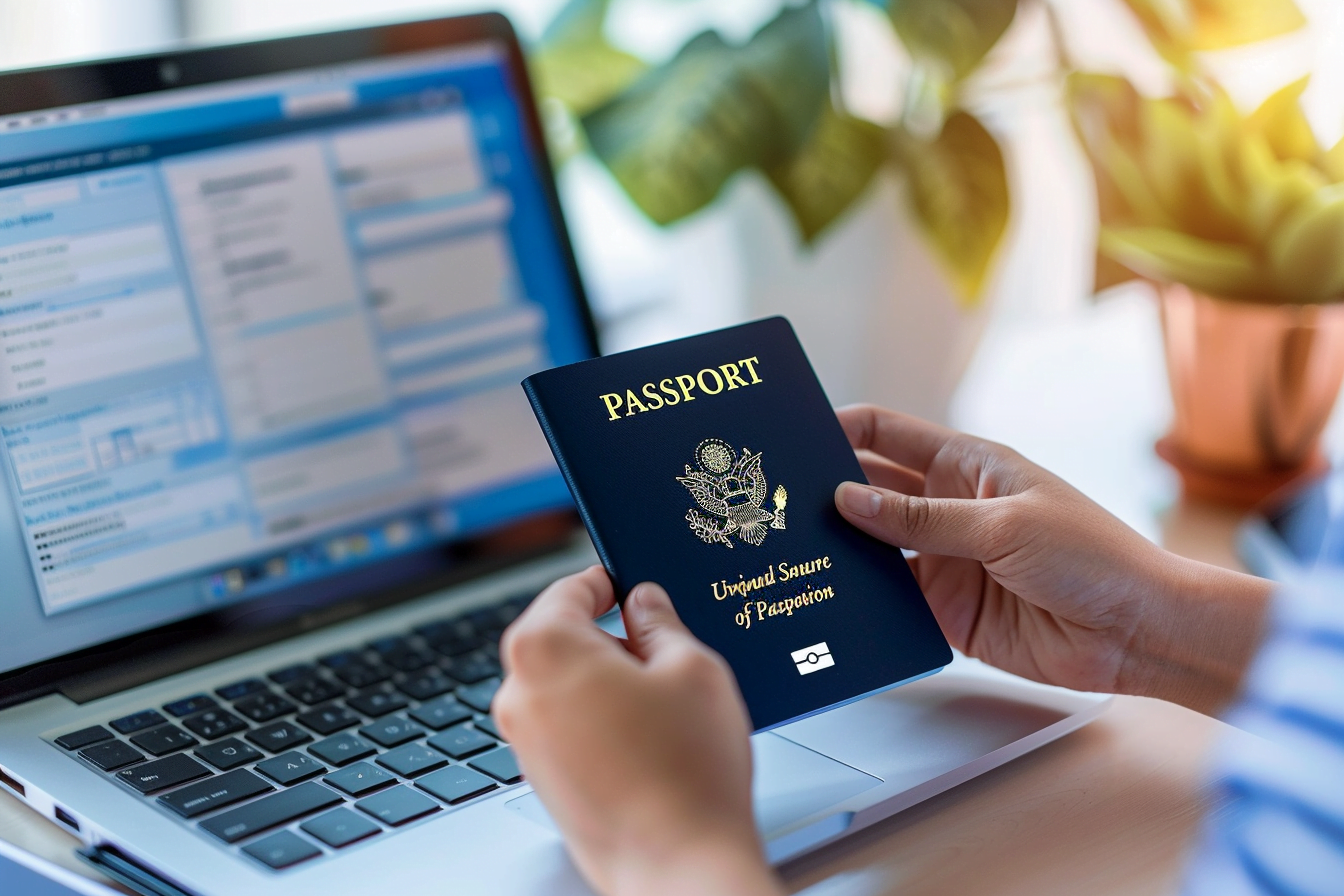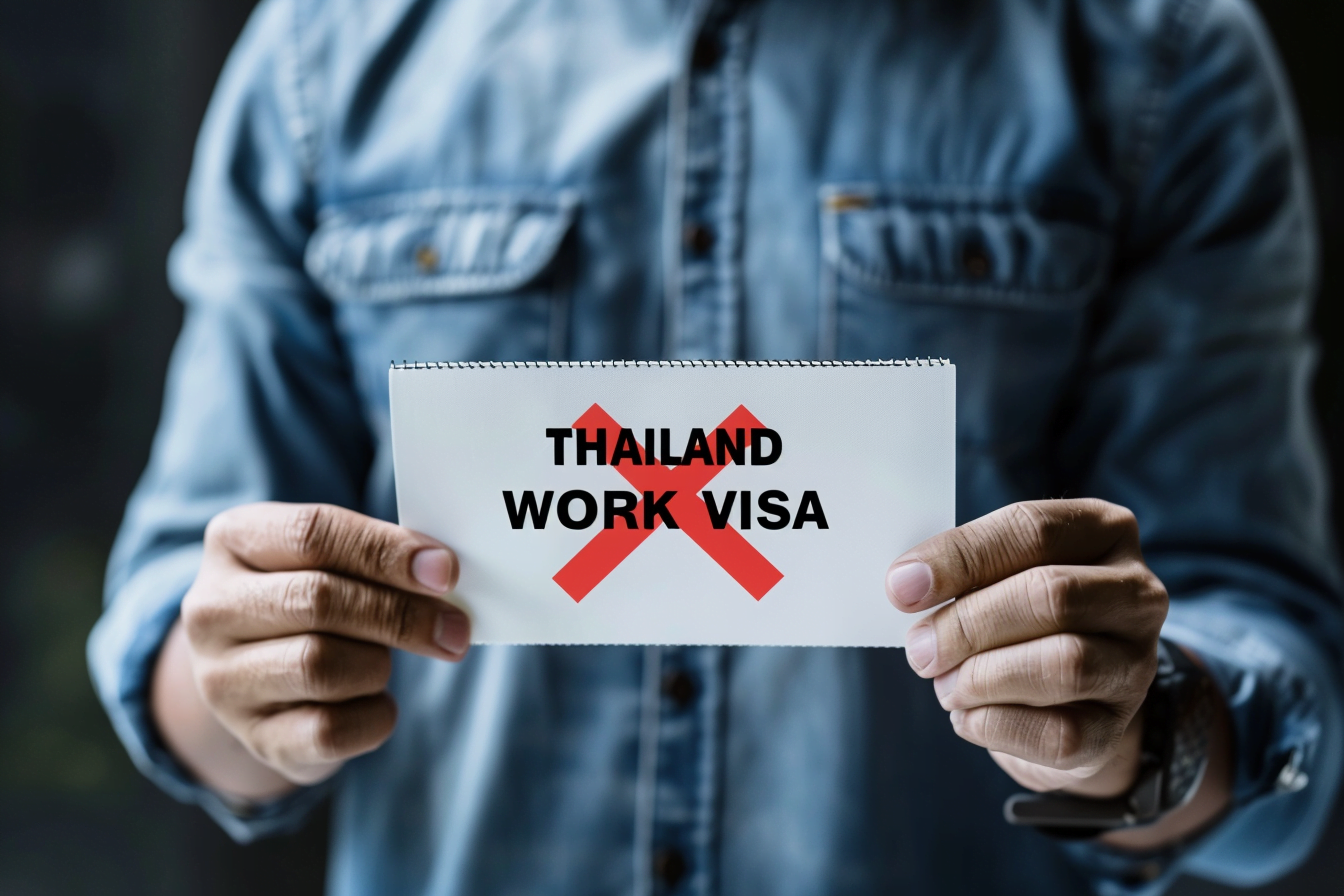Explore the specific thailand work visa restrictions for certain professions and navigate the complex eligibility and application process.
Did you know that in Thailand, specific professions are so protected under the Kingdom’s labor law that they are completely off-limits to foreign workers? Understanding Thailand work visa restrictions for certain professions is crucial for anyone considering employment in the Land of Smiles. Navigating the complexities of work visa restrictions in Thailand requires vigilance, as the nation’s commitment to safeguarding jobs for its citizens shapes its Thailand work visa policy. Those aiming to work in Thailand must familiarize themselves with these policies to ensure compliance and a smooth transition into the Thai workforce.
Key Takeaways
- Comprehension of Thailand work visa restrictions is essential for successfully obtaining employment.
- A non-immigrant visa is required before one can apply for a Thai work permit – a separate but necessary document.
- Work permit processing typically takes around 7 business days at the Thai Ministry of Labor office.
- Carrying a work permit at all times, especially while at work, is mandatory in Thailand.
- Violating work restrictions can result in serious legal consequences, such as fines or imprisonment.
Understanding Thailand’s Work Visa Policies
To work legally in Thailand, understanding the intricacies of Thailand work visa eligibility is a vital step for any professional considering the move. The journey towards obtaining permission to work starts with the Thailand work visa application process, which unfolds at a Thai Embassy or Consulate outside of the Kingdom. The Category “B” Non-Immigrant Visa serves as an entry ticket for professionals into Thailand and forms the basis for future applications for a work permit— a requirement for lawful employment.
Contrary to popular belief, possession of the work visa does not directly confer the right to engage in employment. Instead, it allows the holder to undertake the necessary procedures within Thailand, which includes the application for a work permit and an extension of stay for long-term residence. Each of these components has its own unique set of Thailand work visa requirements to be satisfied before a foreign national can commence their professional activities within the country.
“The Category B visa is simply the starting point of a journey towards building a professional life in Thailand. It is important to meticulously follow the guidelines set forth to ensure a smooth transition and avoid any legal complications.”
Attentiveness to documentation and deadlines is crucial, as any oversight in these initial steps can lead to disruptions in future stages of the work permit and visa extension process.
Once in Thailand, additional requirements must be met, and specific procedures followed, to secure one’s legal status as a working resident. This includes but is not limited to, registering an address in the country, securing comprehensive health insurance, and obtaining a tax identification number. It is imperative for individuals to remain aware of the ongoing requirements, as compliance affects not just their ability to work but also their overall legal status in Thailand.
- Begin by securing a Category “B” Non-Immigrant Visa.
- Proceed with applying for a work permit upon arrival in Thailand.
- Stay abreast of all documentations and conditions for long-term stay.
Thorough preparation and knowledge of the Thailand work visa application process are essential to navigate the nuances of the Thai immigration and labor systems successfully. Aspiring expatriates are advised to engage with the process diligently, ensuring all requirements are met to establish a secure working foundation in Thailand.
Eligibility for Thailand Work Visas
Being eligible for a Thailand work visa encompasses understanding several critical regulations and adhering to specific restrictions, particularly for certain professions. Recognizing these nuances is indispensable for foreign professionals aspiring to work within the Kingdom of Thailand. In this context, the non-immigrant visa emerges as a vital component, characterized by numerous variants, each catering to different requirements and purposes.
Prerequisites for Visa Eligibility
Securing a Thailand work visa mandates navigating a series of prerequisites designed to ensure that applicants meet the stringent conditions set forth by Thai authorities. Key among these is the provision of documentation to substantiate the applicant’s intentions and capabilities. A Letter of Approval from the Thai Ministry of Labour—a sine qua non for visa processing—must be coupled with evidence of sufficient financial means, both of which underscore the applicant’s readiness and aptitude for contributing to Thailand’s economy.
Types of Non-Immigrant Visas
Diverse in nature, non-immigrant visas to Thailand can accommodate a range of purposes, from business ventures to academic pursuits. For professionals, the primary classifications include the Non-Immigrant Visa “B”, “B-A”, and “IB”, each tailored to suit the varying degrees of business involvement and work-related activities intended in Thailand. The complexity of these Thailand work visa regulations demonstrates the nation’s effort to balance openness with regulatory prudence.
Non-Immigrant Visa B (for Business and Work)
The Non-Immigrant Visa “B”, in particular, is tailored for employment and business endeavors within Thailand. Applicants for this visa must submit a binding employment agreement from a Thai employer, which acts as a testament to their future role in the Thai labor market. While professions with work visa restrictions in Thailand are observed, it is the “B” category visa that paves the way for expatriates to secure a work permit, effectively integrating them into Thailand’s professional workforce.
In conclusion, eligibility for work visas in Thailand is an intricate affair that requires attentive consideration of established norms and deep respect for the nation’s regulatory framework. For those who successfully navigate these waters, the rewarding experience of working in Thailand awaits.
The Application Process for Thailand Work Visa
Navigating the Thailand work visa application process requires understanding both the overarching framework and the intricate details that govern foreign employment. Among these are the critical work visa restrictions for specific professions in Thailand and the various Thailand work permit limitations that an applicant must keep in mind. Application steps typically start abroad and follow a stringent pathway to ensure compliance with local regulations. Here’s a deep dive into all that entails securing your entry into Thailand’s dynamic workforce.

Initial Application Steps Abroad
Before packing your bags for Thailand, it’s imperative to get a head start on the visa application procedure in your home country. This preliminary stage involves gathering all the pre-requisite documents, confirming with the Thai embassy or consulate about the specific visa you require, and fully comprehending the scope of the work visa restrictions for certain professions in the Kingdom of Thailand.
Required Documentation for Work Visa Application
Ensuring that you have all the required documentation is a fundamental step in the Thailand work visa application process. Applicants must maintain a portfolio of the following items:
- A valid passport with at least 6 months of remaining validity and sufficient blank pages.
- A duly filled visa application form, complemented by a recent passport-size photograph.
- Evidence of financial stability, typically demonstrated through bank statements or a letter from your employer.
- A police clearance certificate validating your good conduct.
- Respective certificates or official approval letters that support your application, like the Letter of Approval from the Ministry of Labour—if applicable.
Process of Securing a Work Visa
Once you have successfully collated all the necessary paperwork, the next step in the Thailand work visa application process is the submission of your application. You can either mail your documents or present them in person at the issuing authority. After entering Thailand, always remember to keep your work permit up-to-date with any changes, such as your employment details or the office location, by notifying the Ministry of Labour promptly.
| Action Item | Requirement | Notes |
|---|---|---|
| Document Collection | Passport, photos, financial proof, police certificate, etc. | Gather all documents in advance to avoid last-minute issues. |
| Submission of Application | Through mail or in person | Check with the nearest Thai embassy or consulate for details. |
| Keeping Work Permit Updated | Notify Ministry of Labour of changes | Failure to report changes may affect visa status. |
Thailand Work Visa Restrictions for Certain Professions
Thailand’s work visa policy not only facilitates international professionals in contributing to the local economy but also includes rigorous work visa restrictions in Thailand for specific professions. These restrictions reflect the government’s commitment to safeguarding local jobs and industries by allowing only certain occupations to be filled by foreign nationals.

Foreigners are advised to thoroughly research and understand these occupation-specific limitations as they navigate Thailand’s employment landscape. Here’s an overview of the categories and examples of professions impacted by visa restrictions:
| Occupation Category | Description | Visa Restriction Status |
|---|---|---|
| Manual Labor Jobs | Positions requiring hands-on, physical work. | Restricted for foreign workers* |
| Service Industry Roles | Jobs in fields such as hospitality or customer support. | Limited to certain areas of expertise and experience. |
| Professional Services | Included are accountants, lawyers, and engineers. | Open with conditions; Must meet specific qualifications. |
*Exceptions may be granted in select cases with government approval.
Expatriates who violate these occupational restrictions may face severe repercussions, including the possibility of fines or deportation. Employers also risk penalties for non-compliance with Thailand work visa policies. Therefore, it is of utmost importance for potential foreign employees and their employers to consult with legal advisors or immigration experts before attempting to fill a position that may be subject to restrictions.
Note: This information serves as a guideline, and relevant government authorities should be consulted for the most current and detailed regulations concerning work eligibility and visa application procedures in Thailand.
Comprehensive Overview of Thailand Work Permit
Navigating the intricacies of Thailand work visa regulations and understanding Thailand work permit limitations are crucial for any foreign national seeking employment within the Kingdom. The following insights aim to demystify the intricacies surrounding a work permit in Thailand.
Understanding the Thailand Work Permit
The Thai work permit is a mandatory document that authorizes foreign nationals to work legally in Thailand. This legal tool is specific to the job role and the organization hiring the foreign national, reflecting a one-to-one correlation between employee, employer, and role.
Work Permit Requirements and Conditions
Companies registering to employ foreign nationals are expected to align with the Thai Ministry of Labour’s regulations. These regulations are not solely about the paperwork but also encompass contributions to the country’s socio-economic goals. Furthermore, the foreign professional must comply with conditions set forth to standardize legal employment practices within the nation.
Meeting the threshold for company capital and ensuring the employment of Thai nationals are among the measures companies must adhere to when hiring from abroad.
Procedures for Obtaining a Work Permit
Proper procedure and punctuality are paramount when processing the work permit application. This includes submitting essential paperwork before the non-immigrant visa expires and ensuring that employment begins legally and seamlessly.

| Requirement | Description | Essential Documentation |
|---|---|---|
| Pre-Application | Candidate must hold a non-immigrant visa. | Valid passport, Non-immigrant visa copy |
| Company Eligibility | Thai company must meet certain capital requirements and employ a ratio of Thai to foreign staff. | Commercial registration certificate, Corporate income tax documents |
| Personal Documentation | Candidate must provide personal and professional documents. | Academic certificates, health certificate, CV, proof of address in Thailand |
| Application Submission | Applying before the visa expiration and prior to employment commencement. | Completed application form, job description, employer’s documentation |
The integration of these requirements ensures compliance with Thailand work visa regulations and mitigates any work permit limitations that may impede the employment of foreign nationals in Thailand. Diligence in complying with these protocols allows for a streamlined process and legal employment within the nation’s borders.
The Specifics of Profession-Based Restrictions
When it comes to Thailand work visa eligibility, being aware of the professional landscape is crucial. There are work visa restrictions for specific professions in Thailand that are essential to understand for those planning to work in the country. These restrictions have been set to protect domestic employment and cover a range of occupations that are reserved for Thai nationals. Here is an overview of the key professions and activities that are off-limits for foreigners, unless exceptional permissions are secured.
Understanding these limitations is critical in ensuring compliance with Thailand work visa requirements and avoiding any potential legal issues. The following table provides a non-exhaustive list of roles that are typically reserved for Thai citizens, as per the regulations of the Thailand work visa program:
| Occupation Category | Description | Exemption Possibility |
|---|---|---|
| Manual Labor | Tasks involving physical work, including but not limited to, construction work and factory labor. | Unlikely |
| Hairdressing and Beautician Work | Services related to hair cutting, styling, and general beauty treatments. | Rare, with possible cultural exchanges |
| Legal Counseling | Advising on legal matters or representing clients in court. | Special licenses can be granted |
| Agricultural, Animal Husbandry, and Woodcrafting Jobs | Roles involving farming, livestock care, and crafting wood products. | Seldom permitted |
Engaging in a restricted profession can lead to serious repercussions, including deportation and blacklisting. Therefore, foreign nationals must carefully consider these work visa restrictions for specific professions in Thailand and should collaborate with legal advisors or the Thai ministry departments to verify the legality of their occupation within the country.
Navigating Legal Obligations and Compliance
Acclimating to Thailand’s legal landscape is essential for foreigners seeking to engage in professional activities within the country. The Thailand work visa application process is intricate, and adherence to Thailand work visa eligibility and regulations is scrupulously monitored by the Ministry of Labour to ensure seamless integration into the Thai workforce. Understanding and complying with the requirements is not just recommended but obligatory to avoid severe repercussions.
Role of the Ministry of Labour
The Ministry of Labour in Thailand is the cornerstone of the regulatory framework governing foreign employment. This institution ensures that all foreign nationals engaged in work maintain the legitimacy of their stay and employment. It assesses the validation of documents, guarantees their due process with proper legalization and translation, and sees to it that each individual holds the position they’re legally approved for. It stands as a gatekeeper, safeguarding both the workforce and the integrity of Thailand’s work visa regulations.
Understanding Compliance with Thai Labor Laws
Compliance with Thai labor laws extends beyond mere paperwork. It encompasses understanding the precise nature of the Thailand **work visa restrictions** and limitations on professions. The onus is on the visa holder to ensure they are operating within the legal boundaries set forth by the government. The clarity in roles, job descriptions, and the capacity in which one is employed is pivotal and must align with what is outlined in the work permit.
Consequences of Non-Compliance
Non-compliance with Thailand’s work visa regulations can be costly. Working without a permit, assuming employment in a restricted profession, or violating the terms of a permit are all infractions that can lead to severe penalties. Legal ramifications may include fines and imprisonment, not to mention the potential for deportation and future ineligibility for Thailand work visa applications. It’s imperative that foreign nationals exercise due diligence, investigate the nuances of the Thailand work visa eligibility criteria, and stay informed about ongoing regulatory changes to ensure full compliance.
FAQ
What are the work visa restrictions for certain professions in Thailand?
Thailand has a list of occupations that are restricted to Thai nationals, which means foreigners are not permitted to engage in these professions. This includes jobs such as manual labor, hairdressing, and legal counseling. Special exemptions may apply in certain cases, however, they are rare.
How does Thailand’s work visa policy impact foreign professionals?
Foreign professionals must obtain a non-immigrant visa and subsequent work permit to legally work in Thailand. The work visa only allows entry into the country for the purpose of applying for a work permit, and each permit is specific to the authorized occupation and employer. There are also certain professions that foreigners are restricted from practicing in Thailand.
Who is eligible for a Thailand work visa?
To be eligible for a work visa in Thailand, applicants must secure a job with a Thai employer and fulfill the visa category’s qualifications and financial requirements. Additionally, they must provide all necessary documentation, including a police clearance certificate and health certificate.
What types of non-immigrant visas are available for working in Thailand?
There are several types of non-immigrant visas for those intending to work in Thailand, most notably the “B”, “B-A”, and “IB” categories, suitable for businesspersons and employees. Each category has specific eligibility criteria tailored to the nature of the work or investment in the country.
How do you apply for a Non-Immigrant Visa B for business and work?
To apply for a Non-Immigrant Visa B, applicants must gather the necessary documents, including a valid passport, employment agreement from a Thai company, and other relevant qualifications. The applicant must then submit these documents to a Thai Embassy or Consulate, typically prior to arriving in Thailand.
What are the initial application steps for a Thailand work visa from abroad?
Initially, applicants must secure an employment offer from a Thai employer, gather the necessary documentation, and obtain a Category “B” Non-Immigrant Visa from a Thai Embassy or Consulate outside of Thailand. This visa then allows them to enter Thailand and commence the work permit application process.
What documentation is required for the Thailand work visa application?
Required documentation includes a valid passport, completed visa application form with photo, proof of financial ability, a police clearance certificate, health certificate, academic certifications, and a letter of employment or approval from a Thai employer.
What is the process of securing a work visa in Thailand?
After entering Thailand with the non-immigrant visa, professionals must apply for a work permit at the Ministry of Labor. Once granted, the work permit allows the individual to work legally in Thailand, and they must carry it at all times during work hours. They must also extend their stay for the duration of employment.
What are the most important aspects of a Thailand work permit?
A Thailand work permit details the foreigner’s occupation, the Thai company they are employed with, and is legally binding to that specific job and employer. It is essential to maintain the work permit’s validity for the employment period and promptly update it with any changes in job role or employer.
What are the requirements and conditions for obtaining a Thailand work permit?
Applicants must have a non-immigrant visa, a job offer from a Thai company, and specific qualifications relevant to the job. Companies employing foreigners must meet certain conditions, such as capital requirements and employing a certain number of Thai nationals.
What procedures should be followed to obtain a work permit in Thailand?
Once in Thailand with a non-immigrant visa, applicants must submit their work permit application at the Ministry of Labor with all required documents. The process takes about 7 business days, and the applicant must begin working only after receiving the work permit.
What is the role of the Ministry of Labour in the work visa process?
The Ministry of Labour enforces regulations regarding work visas and work permits, ensuring that all foreign workers in Thailand comply with local employment and immigration laws.
What must foreigners understand about compliance with Thai labor laws?
Foreigners must understand that working in Thailand requires adherence to specific regulations, including the prohibition of certain professions for non-nationals, obtaining a proper work permit, and maintaining valid employment status. Non-compliance can result in severe penalties such as fines or deportation.
What are the consequences of non-compliance with work visa regulations in Thailand?
Non-compliance with Thailand work visa regulations can lead to legal action against the foreign worker and the employer. This includes fines, imprisonment, and possible revocation of the work permit, as well as deportation for the foreign national.






Leave a reply